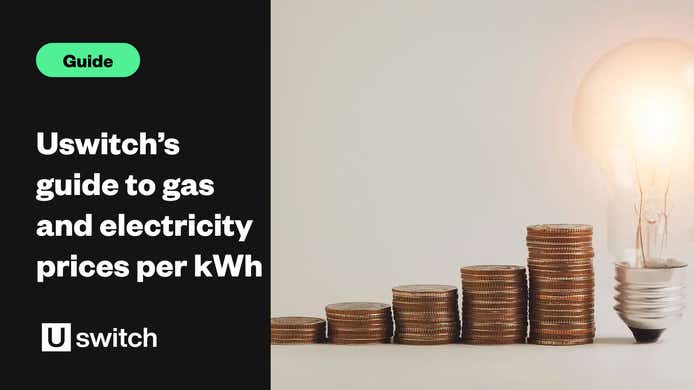What's happening in the energy market?
The energy market reacts to factors like energy storage across Europe and global conflicts like the Ukraine-Russia war. If energy storage is low and the conflict is at its most disruptive for energy flow around Europe, prices rise and customers feel those effects.
The energy price cap increased in April. This is because we had a cold winter and there wasn't much energy stored or renewable energy generated, so wholesale prices have risen.
Currently, though, the market is reacting positively to the potential end of the Ukraine-Russia war. With energy usage falling as we enter spring, storage will increase and prices should continue to drop, leading to a decrease in the price cap from July.
However, it's very difficult to predict what might happen in the energy market. Things can change quickly, so it's a good idea to keep an eye on what's happening if you're thinking of switching.
Why does the energy wholesale market affect the UK so much?
The UK relies heavily on imported gas from Europe as opposed to generating its own energy. This means fluctuations in the wholesale energy market affect it much more than other nations which generate more of their own energy.
This is why the Labour government has made UK renewable energy generation a key part of its manifesto over the next few years. However, it is not a quick process and isn't expected to have a significant effect until at least 2030.
Are energy prices going down?
Energy prices have fallen since the highs of 2022 but remain high overall. The energy price cap is set at £1,849 until 30 June but is currently predicted to fall in the summer as the market reacts positively to the potential end of the Ukraine-Russia war, which affects energy supply across Europe.
Can I switch energy? Should I switch energy?
If you're not on a fixed energy deal, you should at least run an energy comparison because it's very likely you can save money by switching. There are fixed deals available that save about £200 against the April price cap. It's worth running an energy comparison to see what's available in your area.
Run an energy comparison
Enter your postcode below to compare energy prices and get started on your energy switch.
Is the government doing anything about high energy prices?
There is currently no specific energy help available from the government. Previously, support was available in the form of the Energy Bills Support Scheme (a £400 discount on energy bills for all UK households) which was designed to help customers get through the 2022-23 winter.
There are no similar support measures available, but there are more general cost-of-living payments available for those on certain benefits.
What caused the energy market crisis?
Wholesale energy prices suddenly spiked at the end of 2021 due to a range of factors such as high gas costs, low wind energy generation and a fire at the electricity interconnector between Britain and France. These high wholesale prices and increased general market volatility resulted in suppliers taking deals off price comparison websites like Uswitch. This is due to them trying to get to grips with the costs of supplying energy to you and wanting to adjust their tariff prices appropriately.
Conflicts like the Ukraine-Russia war then began, which affected the flow of energy across Europe and made the situation worse.
What happens if my energy supplier goes bust?
There's no need to panic if your energy supplier goes out of business as a result of these gas shortages and subsequent high prices. You'll be moved onto a Supplier of Last Resort by Ofgem - this could be any supplier that Ofgem deems a good choice to take on more customers. You won't lose your energy supply at any time. Your new deal may be more expensive than the one you were on, though, so you might want to see if anything else is available (though given the current situation, this might not be the case).
Which energy suppliers have gone bust as a result of the current situation?
As of November 2024, the following suppliers have gone bust largely due to the wholesale price rise situation:
- PfP (approx. 80,000 customers transferred to British Gas)
- Moneyplus Energy (approx. 9,000 customers transferred to British Gas)
- Utility Point (approx. 220,000 customers transferred to EDF Energy)
- People's Energy (approx. 350,000 domestic and 1,000 business customers transferred to British Gas)
- Green (approx. 255,000 customers transferred to Shell Energy)
- Avro Energy (approx. 580,000 customers transferred to Octopus)
- Symbio (approx. 48,000 customers transferred to E.ON Next)
- Igloo (approx. 179,000 customers transferred to E.ON Next)
- Enstroga (approx. 6,000 customers transferred to E.ON Next)
- Pure Planet (approx. 235,000 customers transferred to Shell Energy)
- Colorado Energy (approx. 15,000 transferred to Shell Energy)
- daligas (approx. 9,000 customers transferred to Shell Energy)
- Goto Energy (approx. 22,000 customers transferred to Shell Energy)
- Zebra Energy (approx. 14,800 customers transferred to British Gas)
- Entice Energy (approx. 5,400 customers transferred to ScottishPower)
- Orbit Energy (approx. 65,000 customers transferred to ScottishPower)
- ZOG Energy (approx. 11,700 customers transferred to EDF Energy)
- Together Energy/Bristol Energy (approx. 176,000 customers transferred to British Gas)
- Bulb (1.6 million customers transferred to Octopus).
Are business energy customers affected by this situation?
Similarly to domestic customers, the business energy market is affected by high prices, but business customers looking to switch their energy are still free to run a comparison or talk to their supplier to see if they can negotiate a better contract than the one they're currently on.
Save money on your business energy
Compare prices from trusted UK business energy suppliers and get your next business energy deal in minutes.




